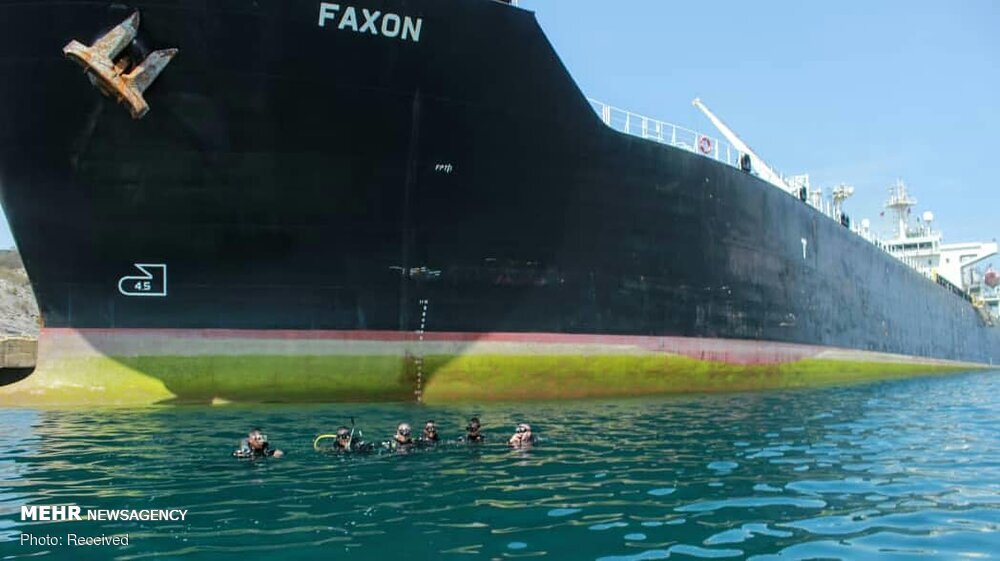How Hezbollah changed the equation by importing fuel from Iran

TEHRAN - The fuel shortage, especially gasoline and diesel, is one of the aspects of the growing economic and financial crisis in Lebanon, which has intensified over the last 18 months.
With consumption of 12 million liters of fuel daily, the Lebanese Central Bank pays near 85% of the cost of energy as subsidy.
The Lebanese political and economic crisis, which began in late 2019, is the most painful period of instability.
Since the start of the recent economic crisis, the value of the Lebanese national currency has fallen by about 90%, and unemployment has risen sharply.
Commodity prices and inflation have skyrocketed, with civil society and economists saying that about half the country's population is now below the poverty line.
Most gas stations are crowded daily, and people wait long hours for petrol and diesel. Some bring gallons with them.
This sharp devaluation of the national currency, given that Lebanon imports most of its products and goods, has had a severe impact on the prices of these goods, especially fuel and essential goods, and the severe shortage and high cost of medicine and other necessary items such as wheat.
The crisis is because Lebanon's source of income comes mainly from tourism, the sale of agricultural products, financial transactions, and remittances from Lebanese working abroad. The economy has severely affected the purchasing power of the people and tourism and import sectors.
The slump in tourism due to the outbreak of the Coronavirus has further exacerbated the decline in Lebanese incomes.
Meanwhile, Lebanon's reception of hundreds of thousands of displaced Syrians who were forced to flee their homes for fear of terrorist attacks and seek refuge in neighboring countries, including Lebanon, has put additional pressure on the Lebanese.
Last year, the Lebanese government announced that it was unable to pay its foreign debts, and the foreign exchange reserves of the Lebanese central bank, whose economy is heavily dependent on imports, have plummeted.
Political instability added to the miseries of the Lebanese, as bitter rival political factions failed to agree on a consensus government.
Several Lebanese domestic political circles also blamed foreign interference and Saad Hariri, the leader of Al-Mustaqbal, for exacerbating the crisis due to his nine-month delay in forming a government and disagreement with other political groups in this regard, and his eventual resignation.
The international community and financial institutions such as the World Bank and the International Monetary Fund have made financial assistance to Lebanon conditional on deep political and economic reforms and a government independent of the influence of political parties and groups. More frankly, these organizations seek to end the presence of parties aligned with the Islamic Republic of Iran, particularly Hezbollah, in the Lebanese cabinet.
In the wake of these dire living conditions, especially the fuel crisis, Hezbollah's secretary-general, Sayyed Hassan Nasrallah, announced his initiative to supply Lebanon with the fuel it needed.
Nasrallah had previously said that if the Lebanese government fails to fulfil its duty in meeting the needs of the society, Hezbollah will take action and provide the necessary fuel to alleviate the problems.
Finally, Nasrallah announced the departure of the first fuel tanker from Iran to Lebanon. He said the ship is carrying diesel because it's a priority. It will not be the last ship.
"I would like to announce that the arrangements for the first ship to depart Iran have been completed and the vessel will set sail within hours", he said in a televised address commemorating Ashura.
Nasrallah announced the news by adding that the Resistance Movement would regard this vessel and other tankers to carry Iranian fuel as Lebanese territory in an apparent warning to Israel and the United States.
The movement is known for resisting, defending, liberating, and preserving Lebanon's territorial integrity from Israeli occupation and aggression. Once again it has come to rescue the country.
The first shipment of the convoys carrying Iranian fuel has arrived in Lebanon from Syria, and the rest are on the route.
Maybe it's worth repeating what Mohanad Hage Ali, a fellow at the Carnegie Middle East Center in Beirut, told to The New York Times on the subject: "That would paint the U.S. as being harsh and heavy-handed, and that is a win for Hezbollah."
Leave a Comment